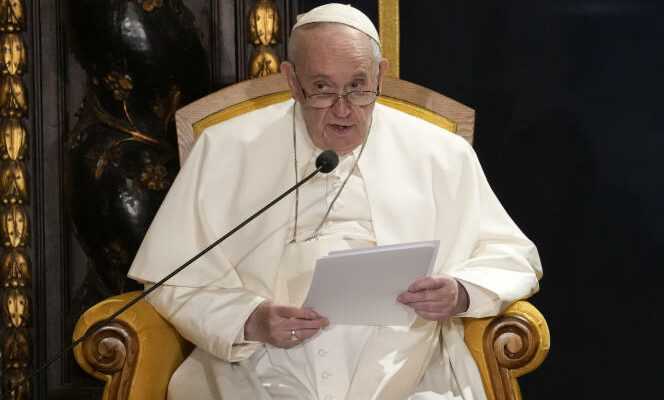On his way to Rome, around the year 60, the apostle Paul had been shipwrecked near the Maltese coast and had been taken in by the natives, who had welcomed him and whom he had not failed to evangelize. Saturday April 2, Pope Francis, successor of Peter, arrived in Malta for a two-day visit to an archipelago where Catholic practice, although still widespread, is like elsewhere in Europe in decline, a movement accentuated by the pandemic. The crowd that gathered along the route, starting from the airport, then in front of the presidential palace, testified, however, that the Catholic imprint remains very strong.
The proclamation of the Gospel, placed by the Argentine pontiff at the heart of the new constitution of the Vatican, promulgated on March 19, was initially to be one of the major themes of this Mediterranean trip. The war in Ukraine stole the show a bit. The head of the Catholic Church devoted almost half of the long speech he gave on his arrival, as on each trip abroad, to the conflict to the country’s political leaders on Saturday morning.
Since the invasion of Ukraine on February 24, Francis has multiplied his entreaties to put an end to “this savage cruelty”, “this violent aggression against Ukraine”, “this disgusting war”. But he had, until now, refused to incriminate Russia or Vladimir Putin by name, in accordance, it is argued in Rome, with the diplomatic tradition of the Holy See, anxious not to be enlisted by the parties in conflict. and maintain an ability to speak with all. “The pope is neither a journalist nor a politician. He is the pope and he acts like a pope”tweeted one of his relatives, Antonio Spadaro, director of the Jesuit magazine La Civilta Cattolica.
“The night of war has descended on humanity”, noted the pope
Saturday, referring “Darkness of War” and “Martyred Ukraine”, François did not deviate from this line of conduct. But he transparently framed the profile of the warmonger he portrayed (plural in the French version provided by the Vatican, but singular in Italian and in the English translation) as “some powerful, sadly locked in his anachronistic pretensions of nationalist interests” who foments “invasions from other countries, fierce urban fighting and atomic threats”. The silhouette of the Russian president is emerging. “The night of war has fallen on humanity”, he noted. Asked the same morning on the plane about the invitation sent to him by the mayor of kyiv, Vitali Klitschko, and supported by Ukrainian President Volodymyr Zelensy, to go to the besieged capital, he replied that the hypothesis was ” on the table “.
You have 57.81% of this article left to read. The following is for subscribers only.
